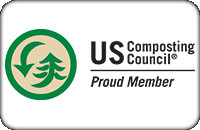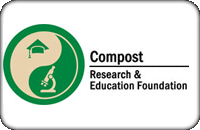How the CAP Program Ensures High Quality Compost Analysis
As outlined in Part One of this series, laboratories that analyze compost as part of the Seal of Testing Assurance (STA) Program must meet certain standards and use the same universal test methods. A key component of the STA program is the Compost Analysis Proficiency (CAP) Program, which analyzes the efficacy of participating laboratories. The CAP program is overseen by Dr. Robert Miller of Colorado State University and supported via STA program fees. Dr. Miller is an expert in laboratory compliance, administering several such programs.
To ensure confidence that analysis from a lab in Pennsylvania will produce the same results as a lab in California, the CAP program regularly conducts quality control testing. Samples of the same compost will be sent to several different labs for assessment. The resulting test reports are provided to Dr. Miller for statistical analysis and review. The results must be consistent and fall within a certain allowable variance to remain certified in the STA program. With the knowledge that all certified labs nationwide will perform the same high-caliber evaluation and present essential characteristics in the same format, direct comparison of compost products is achievable.
No other soil amendment has the level of technical oversight, security, and quality assurance as STA certified compost. Because the CAP program confirms that certified labs maintain high standards of quality, if a landscape architect or engineer specifies STA compost for a project, there is confidence that the submitted material will be regularly tested and meet all program criteria. Compost plays a vital role in green infrastructure installations and thanks to the hard work being done behind the scenes by Dr. Miller and the CAP program, projects using STA compost will continue to produce successful outcomes.
Part Three of this series will demonstrate how to interpret STA data with a Compost Technical Data Sheet. Stay tuned!






